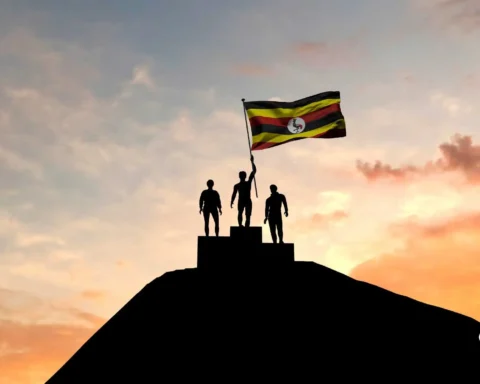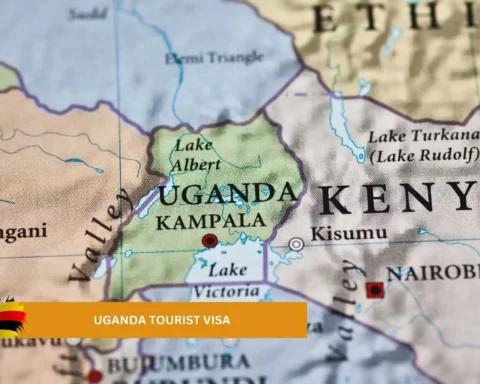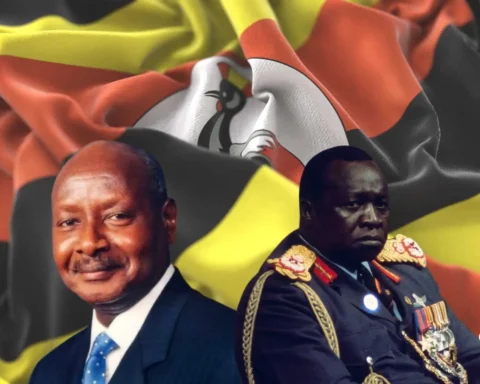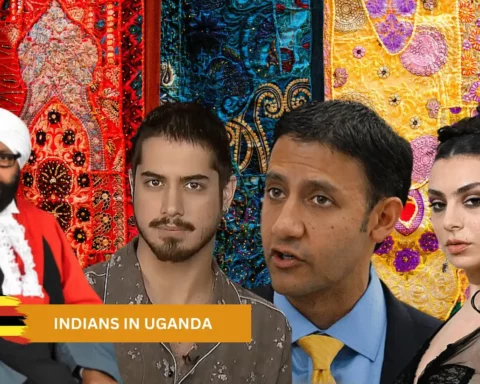Human rights are fundamental to the dignity and well-being of all individuals, serving as a cornerstone of modern societies. To gain a more up-to-date perspective, it is essential to examine recent developments and reports that may have shaped Uganda's current human rights landscape. This blog is dedicated to shedding light on the state of Human Rights in Uganda, focusing on the latest reports and developments. By delving into recent reports and events, we hope to offer a timely and insightful perspective on the human rights situation in Uganda.
Table of Contents
Basic Human Rights
The Bureau of Democracy, Human Rights, and Labor, a U.S. Department of State division, recognises a range of fundamental human rights. These include:
- Freedom of Expression: Rights to freedom to express oneself freely, including freedom of speech, press, and peaceful assembly.
- Freedom of Religion: The right to practice one's religion or belief system without discrimination or persecution.
- Freedom from Torture and Inhumane Treatment: Protection against cruel, inhumane, or degrading treatment or punishment.
- Right to a Fair Trial: The right to a fair and public trial by an impartial tribunal and the presumption of innocence until proven guilty.
- Freedom from Arbitrary Arrest and Detention: Protection against arbitrary arrest, detention, or exile.
- Freedom of Association and Assembly: The right to form and join associations or organisations and participate in peaceful assembly.
- Right to Participate in Government: The right to take part in the government of one's country, directly or through freely chosen representatives.
- Protection of Minorities and Marginalised Groups: Safeguarding the rights and dignity of minority groups, indigenous peoples, and other marginalised communities.
- Gender Equality: Ensuring equal rights and opportunities for all genders.
- Right to Work and Education: The right to work in just and favourable conditions and to receive education.
These are foundational human rights recognised internationally, and the Bureau of Democracy, Human Rights, and Labor works to promote and protect these rights globally. It's important to note that these rights are more extensively detailed in various international agreements and declarations, such as the Universal Declaration of Human Rights and regional human rights treaties.
Uganda Human Rights Commission (UHRC)
The Uganda Human Rights Commission (UHRC) is an independent government body established to promote and protect human rights in Uganda. It is responsible for investigating psychological violence, human rights violations, access to remedy mechanisms, remedy to victims, social protection interventions, and human rights concerns, advocating for the enforcement of human rights, and raising awareness about human rights issues within the country. The UHRC plays a crucial role in ensuring that Uganda adheres to its domestic and international human rights obligations and commitments. Its mission is to safeguard and advance the rights and freedoms of all Ugandan citizens in unsafe conditions.
National Action Plans on Business and Human Rights (NAPBHR)
Uganda has developed a National Action Plan on Business and Human Rights (NAPBHR), which was launched on 28 October 2021 by the Government of Uganda, Ministry of Gender, Labour and Social Development, Ministry of Finance, Ministry of Justice and Constitutional Affairs, Ministry of Labor, and Ministry of Foreign Affairs convening several civil society organisations.
It is typically designed to strengthen remedies to harassment in business operations in construction companies, remedies on business mechanisms, mechanisms against business, to promote responsible business conduct, human rights in business operations, and social impact assessment.
To ensure respect for human rights by businesses operating in the country and provide mechanisms for addressing human rights abuses linked to business activities. To power agencies on business, mechanisms for business, licensing of companies, business-related human rights violations, accountability procedures, and human rights-related issues in business sectors.
The development of NAPBHR typically involves a multi-stakeholder process, including government agencies, businesses, civil society organisations, and other relevant stakeholders. The goal is to establish a framework that aligns national laws and policies with international human rights standards, including the United Nations Guiding Principles on Business and Human Rights.
Some key components and objectives that are often included in National Action Plans on Business and Human Rights include:
- Policy Framework: Outlining the government's commitment to respect, protect, and fulfil human rights in business operations on human rights observance. Strengthen the capacity of occupational safety and health managers.
- Human Rights Due Diligence: Encouraging businesses to conduct human rights due diligence to identify, prevent, and mitigate potential human rights impacts associated with their operations.
- Access to Remedy: Establishing mechanisms for indigenous persons, victims of business, and victims of fraudulent companies and business-related human rights abuses to seek redress and access to legal services and effective remedies. Provision of government-supported legal aid services to vulnerable persons and people with disabilities.
- Capacity Building: Strengthening the capacity of government agencies, businesses, and civil society to implement the NAP effectively.
- Reporting and Monitoring: Setting up mechanisms for monitoring and reporting on implementing the NAP and its impact on business conduct and human rights.
- Consultation and Engagement: Ensuring the NAP development process is inclusive and consultative, involving all relevant stakeholders.
Human Rights Defenders
Human rights defenders are individuals, journalists, civil society actors, human rights activists, human rights lawyers, child rights activists, military courts, groups, or organizations that work to promote, protect, and advocate for human rights as social service delivery at the local, national, and international levels.
They often campaign against human rights abuses, gender-based violence, and offences of possessing arms or other equipment reserved for armed forces, support victims, and raise awareness about issues related to civil, political, social, economic, and cultural rights. Human rights defenders play a crucial role in promoting social inclusion, holding governments and other powerful entities accountable for violations, and advancing the cause of human rights around the world.
Several international organizations and entities monitor human rights in countries around the world. These human rights offices work to assess, report on, and advocate for the protection and promotion of human rights. Some prominent ones include:
- United Nations (UN): The UN and its various bodies, such as the UN Human Rights Council, UNICEF, and the Office of the High Commissioner for Human Rights (OHCHR), play a central role in monitoring and promoting human rights globally.
- Amnesty International: A prominent non-governmental organization that conducts research, campaigns, and advocacy on human rights issues worldwide.
- Human Rights Watch: Another leading NGO that investigates and reports on human rights abuses, sexual harassment, domestic violence, and poor working conditions in the informal sector publishes extensive reports and advocates for policy change.
- Freedom House: It assesses political rights and civil liberties around the world and produces an annual report on global freedom.
- International Commission of Jurists (ICJ): This organization focuses on access to justice, legal aspects of human rights, legal protection promoting the rule of law, and the independence of the judiciary and judicial officers.
- Reporters Without Borders: Concentrates on freedom of the press and advocates for protecting journalists and media freedom.
- International Federation for Human Rights (FIDH): A Paris-based federation of human rights organizations that works on a wide range of human rights issues and sexual exploitation of persons with disabilities.
- Council of Europe: Through the European Court of Human Rights and other bodies, it monitors human rights compliance in European countries.
- African Commission on Human and Peoples' Rights: Focuses on human rights in African countries, with a special emphasis on the African Charter on Human and Peoples' Rights.
- Organization of American States (OAS): Monitors and promotes human rights in the Americas region through the Inter-American Commission on Human Rights.
These organizations, among others, work collaboratively and independently to monitor, document, and address human rights violations and advocate for improvements in human rights protection globally. Human Rights instruments are created at the international, regional, and national levels to provide a framework for recognising, protecting, and promoting human rights.
Violations and Oppositions
Human rights violations in Uganda have been reported in various instances, and opposition to these violations has come from a combination of civil society organisations, human rights defenders, and international bodies. Here are some specific instances of human rights violations in Uganda and those who opposed them:
1. Freedom of Expression and Media Censorship:
- Violation: The government has been criticised for restricting freedom of expression through arrests, harassment of journalists, and media censorship. Issac Kasamani, a photojournalist, reported that he had been shot by a police officer while covering an opposition rally.
- Opposition: Local and international media watchdogs, human rights organisations, and some opposition political figures have raised concerns and spoken out against these violations.
2. Political Repression and Arrests:
- Violation: Reports of government crackdowns on political opposition, including arrests of opposition leaders and allegations of electoral irregularities. The National Unity Platform (NUP) party reported that security forces randomly detained its supporters.
- Opposition: Opposition political parties, civil society organisations, and international observers have opposed these violations, advocating for free and fair elections and protecting political rights.
3. Excessive Use of Force During Protests:
- Violation: Security forces have faced accusations of using excessive force during protests, alleged possession, and demonstrations, resulting in injuries and fatalities.
- Opposition: Human rights organisations, activists, and some political leaders have condemned the excessive use of force and called for accountability for security personnel involved.
4. Treatment of LGBTQ+ Individuals:
- Violation: Discrimination and persecution against sexual orientation of LGBTQ+ individuals, including arrests under anti-homosexuality laws. Some health centres denied reproductive health services.
- Opposition: LGBTQ+ advocacy groups, international human rights organisations, and some progressive voices within Uganda have opposed these violations, advocating for LGBTQ+ rights and decriminalisation.
5. Freedom of Assembly Restrictions:
- Violation: Authorities sometimes restrict the right to peaceful assembly, leading to clashes between protesters and security forces.
- Opposition: Civil society organisations, activists, and opposition political figures have criticised restrictions on freedom of assembly and called for respect for this fundamental right.
6. Treatment of Refugees:
- Violation: Reports of overcrowding and inadequate living conditions, low cost of living, poor sanitation, and lack of protection in refugee camps affect the well-being of refugees. Many individuals fleed South Sudan and the Democratic Republic of Congo (DRC) have automatic prima facia refugee status. Prisons Service reported they received many suspects with injuries on their bodies. Military officers abused the public in many instances.
- Opposition: Various humanitarian organisations, including the United Nations Refugee Agency (UNHCR), have worked to address these issues and ensure better living conditions for refugees.
7. Land Rights and Forced Evictions:
- Violation: Land disputes, forced evictions, and trafficking of persons in communities from their ancestral lands have been reported.
- Opposition: Local communities, land rights activists, and some human rights organisations have opposed these violations, advocating for the protection of land rights.
8. Freedom of Religion Restrictions:
- Violation: Instances of harassment and discrimination against religious minorities and restrictions on religious freedom have been documented.
- Opposition: Religious leaders, interfaith groups, and human rights advocates have spoken out against these violations, calling for religious tolerance and freedom.
Opposition to human rights violations in Uganda often involves a combination of local civil society groups, international human rights organisations, diplomatic efforts by foreign governments, and concerned individuals working to raise awareness, document abuses, and advocate for change.
Latest Report on Human Rights in Uganda
Yoweri Museveni is the President of Uganda. He was re-elected for the sixth consecutive five-year term and returned a National Resistance Movement majority to the unicameral parliament. The elections included voter intimidation, harassment of the opposition, closure of social media websites, and lack of transparency and independence in the Electoral Commission.
While the law allows the military to support police operations to maintain internal security, he detailed army officials to leadership roles within the police and the executive, including government ministries. The Ministry of Defense oversees the army. The civilian authorities controlled security forces. The security forces committed countless cases of abuse.
Significant human rights issues included credible reports of unlawful or arbitrary killings, including extrajudicial killings; forced disappearance; torture and cases of cruel, inhuman, or degrading treatment or punishment by government agencies; harsh and life-threatening prison conditions; arbitrary arrest or detention; political prisoners or detainees.
Serious problems with the independence of the judiciary; arbitrary or unlawful interference with privacy; punishment of family members for alleged offences by a relative; serious abuses in a conflict, including unlawful civilian harm; severe restrictions on freedom of expression and media, including violence, threats of violence, and unjustified arrests or prosecution of journalists, and censorship; serious restrictions on internet freedom.
Substantial interference with the freedom of peaceful assembly and freedom of association, including overly restrictive laws on the organization, funding, or operation of nongovernmental organizations and civil society organizations; serious flaws with citizens’ ability to determine their government through free and fair elections; serious and unreasonable restrictions on political participation; serious government corruption.
Severe government restrictions on or harassment of domestic and international human rights organizations; lack of investigation of and accountability for gender-based violence, including domestic and intimate partner violence, sexual violence, and child, early, and forced marriage of Ugandan people.
Crimes involving violence or threats of violence targeting lesbian, gay, bisexual, transgender, queer, or intersex persons; and the existence of laws criminalizing consensual same-sex sexual conduct between adults, albeit not fully enforced.
The Ugandan government and Uganda Human Rights Commission failed to investigate, prosecute, or punish officials who committed human rights abuses or engaged in corruption, whether in the security services or elsewhere in government, and impunity, including for serious abuses, was a problem.
Conclusion
The report on human rights in Uganda unveils a stark reality: a landscape of discrimination, violence, and inequality mars the promise of equal rights and freedoms. It calls upon us to reflect on our shared responsibility to protect and promote the dignity of all Ugandans. In this sobering account, we witness the urgency for meaningful reforms, international collaboration, and grassroots efforts to ensure that the ideals of human rights become a lived reality for every individual in Uganda. As we confront these challenges, let us be reminded that pursuing justice and human rights knows no borders, and our collective actions can shape a brighter future for Uganda and the world.
FAQs
Who was Dominic Ongwen?
Dominic Ongwen is a former senior commander of the Lord's Resistance Army (LRA), a rebel group that operated in Uganda and neighbouring countries. He gained international notoriety due to his involvement in the LRA's activities, which included numerous human rights violations, such as abductions, child soldier recruitment, sexual violence, and attacks on civilians.
Who is the head of the Uganda Human Rights Commission?
Mariam Fauzat Wangadya is the Chairperson of the Uganda Human Rights Commission.
What causes gender violence in Uganda?
Gender violence in Uganda is primarily caused by deeply ingrained cultural norms, gender inequalities, and limited access to education and economic opportunities, perpetuating attitudes and behaviours that condone violence against women and girls.
What is Human Rights Impact Assessment?
A Human Rights Impact Assessment (HRIA) is a systematic process that evaluates the potential or actual impacts of policies, projects, or activities on human rights, ensuring that they comply with international human rights standards and do not result in harm or discrimination. HRIs aim to identify, prevent, and address human rights violations and promote the protection and fulfilment of human rights.











[…] protests were met with the jailing and execution of more innocent human rights and environmental advocates by state actors with impunity. Global Witness documented the killing of […]